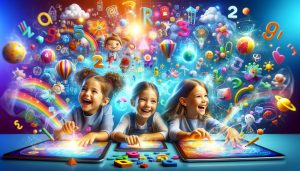A group of artists has come together to assert that generative AI technology is a positive tool for creativity and should be embraced rather than feared. They have penned an open letter to Congress, urging lawmakers to involve the creative community in discussions regarding the regulation and definition of AI. The letter highlights the fact that AI, machine learning, and algorithmic tools have been used in various artistic domains for many years, and generative AI is simply another extension of this creative process.
Key Takeaway
The artists argue that they should be consulted in the development and regulation of generative AI, as they are the ones who effectively employ these tools to produce innovative works of art.
The letter emphasizes the role of technology in democratizing the art world by lowering barriers to entry and providing opportunities for creators from diverse backgrounds. It challenges the misconception that generative AI is solely about regurgitating existing works and argues that it should be seen as a revolutionary trajectory that can benefit all of humanity.
However, one critique of the letter is that it fails to address the valid concerns raised by artists about the unauthorized use of their intellectual property. Some argue that AI systems have been developed using wholesale IP theft, exploiting artists’ labor without proper consent or compensation. While the letter touches upon the exploitation of artists’ work by major corporations, it misses the mark in acknowledging the true depth of the issue.
Nevertheless, the letter serves as a powerful reminder to the government that the creative community should not be overlooked when shaping policies around AI. By involving artists in the development of generative AI, we can ensure that the technology evolves responsibly and benefits both creators and society at large.
Looking Ahead
As we embark on the AI-influenced era of art and industry, it is crucial to foster a space for both disagreement and collaboration. While this open letter represents one perspective, it underscores the need for a well-rounded and inclusive dialogue. It is inevitable that differing opinions will emerge among artists, which will further enrich the ongoing conversation about the ethical and creative implications of AI. With time, these conversations will shape the future of AI in the art world, ensuring that artists’ voices are heard and respected.

























